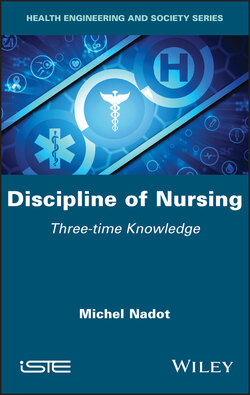Читать книгу Discipline of Nursing - Michel Nadot - Страница 10
1
Role of History 1.1. Lay knowledge
ОглавлениеLay knowledge is that which goes back to periods when a group of people used knowledge when that group did not yet exist as a corporation. It is knowledge that is not necessarily shared collectively and not yet standardized. People who needed this lay knowledge to carry out their occupations were not aware that they had common knowledge and shared it with others. They only did their work in conditions that were sometimes close to hospital slavery. There were still no schools and structured training in the age of lay knowledge. However, and this is an important discovery, those who performed their duties needed to pass on their knowledge to those who would replace them. Everyone was alone with the hospital managers of the time. The hospital governesses, maids and servants took an oath to perform their duties in exchange for a salary in kind and in cash. They mobilized tacit knowledge in action, domestic knowledge, knowledge necessary to run a household, take care of a family, mobilize knowledge related to the characteristics of gender, the woman, the mother, the governess and her servant or mistress of the house. In any case, there was a household to organize!
There were no new roles, new knowledge or modern nursing without reference to previous knowledge. Just as it is difficult to talk about advanced practice without knowing what ordinary practice consists of, we cannot value the role of Florence Nightingale without understanding why she suddenly appeared and was talked about in the mid-19th Century. There is always a before. There were treatments before her. The evolution of knowledge is always an improvement of previous knowledge. And this, even when the latter does not give rise to extraordinary words, to writing and its visibility. Ancient knowledge can even prove to be timeless. It is still part of the care practice. For example, practices of moving around in the hospital or collective hygiene practices have survived for centuries. They still prevail, and we can prove it. What has changed is the environment and the characteristics of the space in which we move. Lay knowledge is not to be contrasted with professional or scientific knowledge. It has simply not yet reached this stage of standardization and recognition. This was much earlier.
The knowledge of the age of lay knowledge was heterogeneous, disparate, vulgar, tacit and implicit. This knowledge had little to do with medicine. But it was in line with local knowledge of experience related to the exploitation of a domain, efforts to ensure survival and representations about health. We do not recognize them because we do not talk about them. Those who used this knowledge did not even exist. They had no status other than that of a servant conferred by the patricians of a city or the hospital’s Board of Directors. An existence to be enjoyed in some way. Women had no existence in the medieval hospital. Yet there was no lack of work! Women were still excluded from collective identities in the age of lay knowledge. The most literate even found it difficult to publish under their real names. In fact, “the lay knowledge of healthcare was structured according to the history and culture of the group from which it originates” [DAL 08b]. It is modestly and with difficulty found in the category of women, domestic servants, housekeepers and hospital maids. However, it must be recognized that this is the group from which nursing originated. As you can see, we come from very far away!
Even at the level of hospital archives, it happens that the traces of domestic work were those of the working classes and maids, and no effort was made to list, classify and identify them. What was the point? Thus, we can sometimes find whole bundles of forgotten hospital parchments or books of accounts which concern precisely care in the secular period.
The sources of knowledge on aid to daily and institutional life are sometimes found abandoned under the stairs of a museum or in the civil defense shelters of a town hall, because there has not yet been time to inventory them. This is how, for example, the history of medicine comes before the history of knowledge about care.
However, let us recognize that there are certainly more medical historians than there are nursing historians. The research budget in nursing faculties on this topic is probably lower than the budget that has long been spent in history faculties for medicine.
